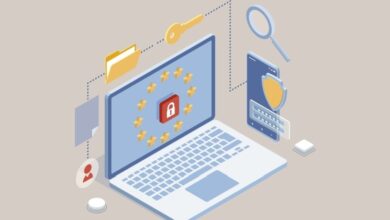7 Reasons Why Online Learning Is The Future Of Education –

Image Source pexels.com
by TeachThought Staff
Online learning is rapidly emerging as a pivotal force in the evolution of education. Its growth is propelled by technological advancements and a shifting global landscape that values accessibility and flexibility in learning.
This form of education transcends geographical barriers, allowing anyone with internet access to benefit from a wide array of learning resources and expert instruction. Its adaptability makes it suitable for various lifestyles and learning preferences, offering a personalized approach to education. With the rising demand for continuous skill development and lifelong learning, online education is well-positioned as a key player in the future of educational delivery. Let’s delve into the core reasons that underscore online learning’s role in shaping the future of education.
- Easy Access to Education
One of the main reasons online learning is seen as the future of education is its easy access. People from all over the world can learn new things without traveling. They just need a computer and internet. This is great for those who live far from school or are busy. Online courses let you learn at your own pace, anytime and anywhere. This means you can fit learning into your schedule, whether early in the morning or late at night. It’s also helpful for people who learn better on their own. With online learning, education is just a few clicks away for anyone with internet access.
- Wide Range of Programs and Specializations
Online learning offers many programs and specializations, catering to almost every educational need and interest. From short courses to advanced degrees, the options are almost limitless. For example, professionals aspiring to enhance their leadership skills can enroll in an online EdD in Leadership program. This flexibility to choose from diverse fields – technology, business, arts, or education – means individuals can tailor their learning journey to their career goals and personal interests. This availability of online specialized programs breaks down traditional education barriers, where options might be limited by location or resources. It opens new possibilities, allowing learners to pursue their passions and advance professionally without geographical constraints.
- Interactive and Engaging Learning Methods
Online learning often uses interactive and engaging methods to teach. These methods can make learning more fun and effective. Students can use videos, quizzes, and interactive tools to understand topics better. This differs from traditional classrooms, where learning is mostly through lectures and textbooks. Online courses also allow for more discussion and sharing of ideas. Students can talk to each other and to teachers through forums and chats. This can make learning more active and helps students feel more connected, even though they are not in the same place. These interactive methods can keep students interested and help them remember what they learn better.
- Personalized Learning Paths
Online learning provides personalized learning paths, allowing students to learn in a way that suits them best. Each student can go at their own pace, spending more time on difficult topics and moving quickly through easier ones. This is a big change from traditional classrooms where everyone follows the same pace. Online courses often offer different difficulty levels and various types of content, like videos, readings, and interactive activities. This means students can choose how they learn best. Personalized learning is important because it meets the unique needs of each student. It can help students who need extra time to understand things and those who want to move faster and learn more.
- Skills for the Digital World
Online learning teaches important skills for the digital world. In today’s world, knowing how to use technology is essential. When you learn online, you use computers, the internet, and different software. This helps you get better at these tools. It’s not just about the subject you are studying. You also learn skills like finding information online, being safe on the internet, and working with others online. These skills are important for many jobs today. Also, learning online can teach you to be self-motivated and manage your time well. These are key skills in both work and life. Online learning prepares you for a world where technology is everywhere.
- Continuous and Lifelong Learning
Online learning supports continuous and lifelong learning. It’s not just for young students but for anyone who wants to keep learning, regardless of age or stage in life. With online courses, you can learn new things whenever you want, even if you work or have other responsibilities. This makes it easier to keep updating your skills and knowledge over time. Lifelong learning is important today because things change fast, especially in jobs and technology. Being able to learn new things all the time can help you keep up with these changes. Online courses make it easy to keep learning throughout your life, keeping you ready for whatever comes next.
- Building Global Perspectives and Cultural Awareness
A lesser-known benefit of online learning is how it helps build global perspectives and cultural awareness. You often meet and work with people from different countries and cultures in online courses. This can help you understand and appreciate how things are done in other parts of the world. You learn to communicate and work with people unlike you, which is a key skill in our connected world. Also, many online courses talk about global issues and ideas, helping you see things from a bigger, more international point of view. This aspect of online learning is important because it prepares you to work and live in a world that is more and more connected.
Conclusion
In conclusion, online learning is shaping the future of education with its easy access, wide range of programs, interactive methods, personalized paths, digital skills development, and support for lifelong learning. It’s not just about convenience; it’s about providing a rich, flexible, and globally connected learning experience.
Online learning breaks traditional boundaries, offering education adaptable to individual needs and global challenges. As technology advances, online education will become even more integral to our learning landscape, preparing us for a constantly evolving world and increasingly interconnected.
Source link



